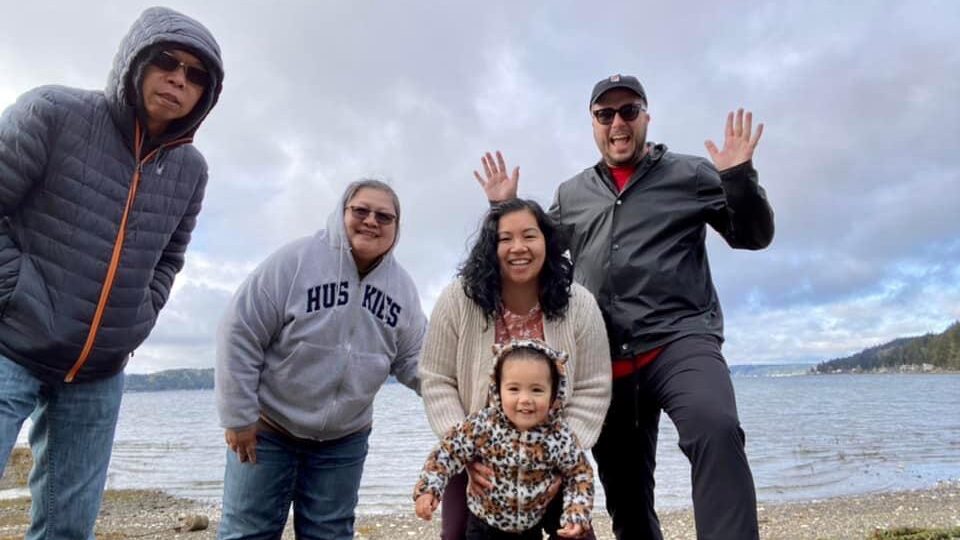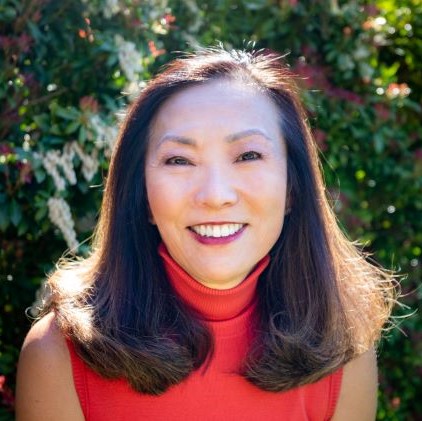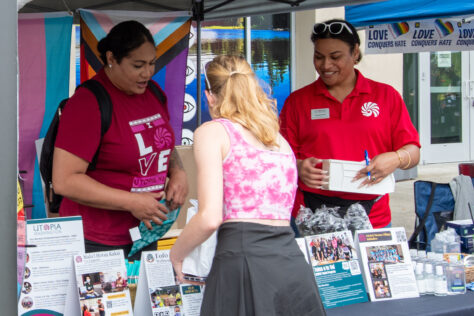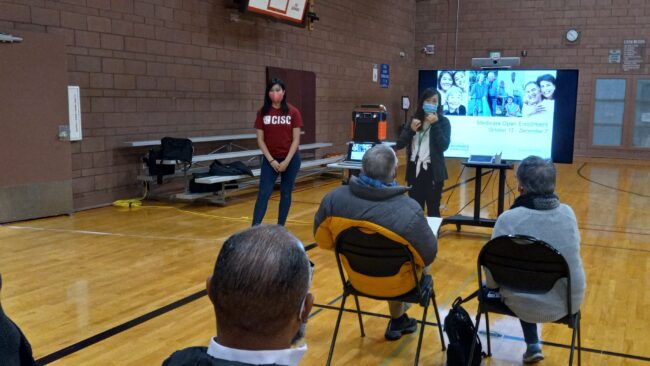
Nonprofits leverage Arcora project grants and community expertise to improve oral and overall health for Asian American, Native Hawaiian, and Pacific Islander community members.
Hi there! I’m Sunshine, Arcora Foundation’s vice president. I’m honored to share a bit about my background and introduce 2 organizations working to remove barriers to good oral and overall health for our state’s Asian American, Native Hawaiian, and Pacific Islander (AANHPI*) community.
As an immigrant from the Philippines, cavities were an expected part of my childhood. My family and I weren’t taught about the importance of prevention until we started seeing a dentist in the U.S. My young smile had several cavities from eating too much candy and not enough brushing and flossing. Thankfully, our new family dentist was able to address these cavities and start me on a path to good oral health.
I’m grateful to my parents for ensuring that my sister and I started seeing the dentist early on after we arrived in the U.S. But for too many families, barriers to care continue to exist. In Washington state, kindergarten and third-grade children whose primary language spoken in the home is not English have more than a 50% higher rate of treatment need for oral health concerns than English-only speakers.
We also see racial and ethnic disparities impacting our state’s Pacific Islander communities. Among second and third graders, 75% of Pacific Islander children live with untreated oral disease —a condition that is largely preventable with equitable access to dental care and at-home oral hygiene supplies.

“Oral disease disproportionally affects the poor and socially disadvantaged members of our community. There is a very strong and consistent association between socioeconomic status (income, occupation, and educational level) and the prevalence and severity of oral diseases. That is why Arcora Foundation partners with organizations across the state with a focus on good oral and overall health for all with no one left behind.”
Carol Nelson
Arcora Foundation Trustee
Arcora partners with community-based organizations to remove barriers and ensure people of all backgrounds have the education and access to care they need to reach their full health potential. This approach is grounded in our 2022-2024 strategic plan.
*Note: The term “AANHPI” highlights the collective strength and advocacy of Asian American, Native Hawaiian, and Pacific Islander communities. Arcora recognizes the power of this larger group while also advocating for more disaggregated data around race. Through disaggregated data, we can better identify and address inequities of various communities that fall within the AANHPI community.
Removing barriers to health literacy and culturally appropriate care.
During my 11 years at International Community Health Services, I saw how multiple, intertwined barriers to care can impact the health outcomes of the AANHPI community. Like my own childhood experience, Asian and Pacific Islander immigrants may come from cultures where the importance of prevention in oral health isn’t emphasized—or the health care system is structured much differently than in the U.S.
Along with this cultural difference, it can be difficult to navigate a health care system when English is not your primary language. In the U.S., an overwhelming majority of Asian immigrants (86%) say they speak a language other than English at home, along with more than 25% of Native Hawaiians and other Pacific Islanders. Linguistically and culturally appropriate care is critical to improve health equity for a large percentage of our state’s population.
Arcora is pleased to support community-based nonprofits through our project grant funding. I invite to you to now meet 2 amazing organizations leading efforts to address these barriers—including language and culturally appropriate services—for their Asian American, Native Hawaiian, and Pacific Islander community members.

UTOPIA Washington
Mission: Actively replacing systems of oppression with ecosystems of care and safety for all our communities through Black and Brown organizing, prioritizing land and bodily autonomy, and reclaiming our cultural narratives.
Vision: A world of abundance, autonomy, and harmony, where all forms of supremacy cease to exist for all life.
Tell us about UTOPIA’s oral health project.
“With the help of Arcora’s project grant funding, UTOPIA Washington aims to provide community (Queer and Trans Pacific Islanders, Queer and Trans BIPoC, and all 2SLGBTQIA+) education and information surrounding oral health care access. We’ll do this through an approach and health initiative that is culturally sensitive and culturally informed.
“This multi-pronged approach will include several key components: a needs assessment survey, case management, client assistance, and an educational community outreach campaign. Through these efforts, we can best understand and address the unique needs of our community members and the barriers that surround access and availability of dental care. UTOPIA will provide for the needs of community when accessing dental care in the forms of transportation, client resource coordination, childcare, and in-depth case management.
“The goals of this project are:
- Capture accurate and up-to-date data and analysis of queer and trans Pacific Islander and BIPoC 2SLGBTQIA+ community members access to and barriers surrounding oral health care.
- Increase and improvement of community education and awareness of oral health care information, access, and availability.
- Continue to assess and provide resources for dental and medical care information through case management and care work coordination.
- Use culturally informed and sensitive language translations and interpreters for survey, case management, and distribution of data/informational campaigns (in various Pacific Islander languages).”
What would you like others to know about UTOPIA, your community, and your work to improve health equity?
“Since its inception, UTOPIA Washington’s work has been steeped in the barriers, challenges and experiences of QTPI/QTBIPoC (Queer and Transgender Pacific Islanders/Queer and Transgender Black, Indigenous, People of Color) who face pervasive racism, xenophobia, homophobia and transphobia in ways that impact their safety, health, sense of wellness, and desire to build a positive future for themselves and their families here in the diaspora and back in their island nations.
“We also understand that band-aid solutions need to be coupled with strategies that get at the root of all forms of supremacy. UTOPIA offers our services to all, but are aware, mindful, and wanting to also make a positive impact on immigrant, refugee, and communities of color. As the targets of many oppressions, our community is at risk. This is why UTOPIA is such an essential landing place for the QTPI and QTBIPoC community in the region. We provide healing spaces and serve as a trusted, culturally aligned resource for QTPI/QTBIPoC to access HIV+ prevention resources, health services, behavioral health support, housing and other essential services, education and youth outreach, policy, systems, and legislature education and advocacy, and a caring community.”

Chinese Information and Service Center (CISC)
Mission: We support immigrants and their families by creating opportunities for them to succeed, while honoring their heritage.
Tell us about CISC’s oral health project.
“With Arcora project grant funding, CISC will provide person-centered support to assist community members with dental care needs, from information and consultation to appointment and transportation scheduling with dental clinics and care facility when needed. CISC clients without dental coverage will be connected to free resources such as community health clinics, University of Washington and King County Public Health dental clinics, or other oral health programs.
“CISC clients can make appointments with our program specialist who will help them navigate the often complicated and intimidating health care system, including applying for Medicaid and Medicare, finding a provider, translation of health care documents, transportation assistance, and more. To ensure success, our team will support clients through the enrollment process and follow up with their cases to monitor their progress.
“Our goal is to make sure everyone will have access to equitable dental service and care.”
What would you like others to know about CISC, your community, and your work to improve health equity?
“CISC’s Healthcare Access and Outreach Program connects ethnic Chinese immigrants to quality and affordable health care through education, information, outreach, and individualized, person-centered support. We strive to advance access to equitable health care by breaking down cultural, language, and technology barriers for our clients and addressing their overall health and wellness needs to reduce health disparities. Through a holistic, bilingual/bicultural approach, we ensure that fair and unbiased health care services are available in the community, regardless of language, ethnicity, gender, income, social, and/or economic status.
“Moreover, our ‘No Wrong Door’ policy creates a flexible, person-centered response to meeting the health care needs of our community. CISC helps to eliminate gaps in services and programs that can arise when working with multiple agencies and/or agencies that are not able to provide culturally responsive services, thus increasing equity in health care.
“We understand that oral health is important for overall health and wellbeing, and poor oral hygiene can have a negative impact on quality of life. Therefore, we educate and promote public awareness of good oral hygiene, so people can have better overall health and reduce the risk of certain illnesses.”
We can’t do this work without you. Advancing oral health requires public and private partnerships, policy advocacy, and funding. Join us in our mission to bend the arc of oral health toward equity. Learn more and contact us at info@arcorafoundation.org.
